The Moore PTC helps everyday Christians deepen their knowledge of God’s word and increase in confidence to teach others. Flexible study options include online personal study or study together with others in church or bible study.
Features of the PTC include:
- Self-paced study, individually or in a group
- 20 subject units available
- 3 certificate levels
- Online notes
- Interactive quizzes and multiple-choice exams with detailed feedback

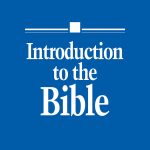 Biblical Theology 1: Introduction to the Bible shows how the great themes of the Bible fit together into one story that spans both the Old and New Testaments. At the centre of the story is of course Jesus and this unit shows how God planned to redeem his people, which begins with promises to Abraham and continues through the fortunes of the nation of Israel, reaches its climax at the cross.
Biblical Theology 1: Introduction to the Bible shows how the great themes of the Bible fit together into one story that spans both the Old and New Testaments. At the centre of the story is of course Jesus and this unit shows how God planned to redeem his people, which begins with promises to Abraham and continues through the fortunes of the nation of Israel, reaches its climax at the cross. Biblical Theology 2: Promise to Fulfilment focuses on training students in a method for reading the Bible well, paying particular attention to interpreting each passage of the Bible in light of its place in the single overarching story that binds the Bible together as a whole. The passages chosen for particular attention represent a range of different genres and each come at a key stage in God’s unfolding plan of redemption.
Biblical Theology 2: Promise to Fulfilment focuses on training students in a method for reading the Bible well, paying particular attention to interpreting each passage of the Bible in light of its place in the single overarching story that binds the Bible together as a whole. The passages chosen for particular attention represent a range of different genres and each come at a key stage in God’s unfolding plan of redemption. Old Testament 1: The Pentateuch covers the first five books of the Old Testament, examining some of the foundational events in the Bible such as creation, the fall, the promises to Abraham, exodus from Egypt and the giving of the Law. The great themes of sin, covenant, redemption, sacrifice and blessing all emerge from this unit which show how these point forward to the work of Christ.
Old Testament 1: The Pentateuch covers the first five books of the Old Testament, examining some of the foundational events in the Bible such as creation, the fall, the promises to Abraham, exodus from Egypt and the giving of the Law. The great themes of sin, covenant, redemption, sacrifice and blessing all emerge from this unit which show how these point forward to the work of Christ. In Old Testament 2: The Former Prophets, we examine the experience of Israel from original conquest of the land to her eventual exile, as recounted in the books of Joshua, Judges, 1 & 2 Samuel and 1 & 2 Kings. This period provides us with a glimpse of what it means for God’s people to live securely in God’s place, guided by his king and prophets and so informs how we understand the Kingdom of God and the New Testament promise of an eternal inheritance.
In Old Testament 2: The Former Prophets, we examine the experience of Israel from original conquest of the land to her eventual exile, as recounted in the books of Joshua, Judges, 1 & 2 Samuel and 1 & 2 Kings. This period provides us with a glimpse of what it means for God’s people to live securely in God’s place, guided by his king and prophets and so informs how we understand the Kingdom of God and the New Testament promise of an eternal inheritance. Old Testament 3: The Latter Prophets introduces the ‘writing’ prophets God sent to Israel leading up to, during and after the exiles that Israel experienced. In the Latter Prophets students encounter a wide range of topics and literary styles. Prominent in this material are warnings about coming judgement and promises of future redemption and blessing, although a special emphasis is placed on the promise of a new covenant that finds its fulfilment in the gospel.
Old Testament 3: The Latter Prophets introduces the ‘writing’ prophets God sent to Israel leading up to, during and after the exiles that Israel experienced. In the Latter Prophets students encounter a wide range of topics and literary styles. Prominent in this material are warnings about coming judgement and promises of future redemption and blessing, although a special emphasis is placed on the promise of a new covenant that finds its fulfilment in the gospel. Old Testament 4: Wisdom & Exile focuses on those sections of the Old Testament devoted to the perennial questions and concerns of God’s people at any time. This includes books devoted to living well in God’s world (the Hebrew concept of ‘wisdom’), liturgical literature that helps us see how to bring our whole lives, both joyous and painful, before God and finally the Old Testament works that explicitly look forward to the ‘end times’.
Old Testament 4: Wisdom & Exile focuses on those sections of the Old Testament devoted to the perennial questions and concerns of God’s people at any time. This includes books devoted to living well in God’s world (the Hebrew concept of ‘wisdom’), liturgical literature that helps us see how to bring our whole lives, both joyous and painful, before God and finally the Old Testament works that explicitly look forward to the ‘end times’. New Testament 1: Mark’s Gospel takes a systematic approach to reading through the Gospel of Mark, in the process answering the two central questions that Mark poses to his readers: ‘Who is Jesus?’ and ‘What did Jesus come to do?’. Attention is paid to locating the identity and work of Jesus in the context of the Old Testament expectations of the Messiah and showing how Jesus fulfils those expectations.
New Testament 1: Mark’s Gospel takes a systematic approach to reading through the Gospel of Mark, in the process answering the two central questions that Mark poses to his readers: ‘Who is Jesus?’ and ‘What did Jesus come to do?’. Attention is paid to locating the identity and work of Jesus in the context of the Old Testament expectations of the Messiah and showing how Jesus fulfils those expectations.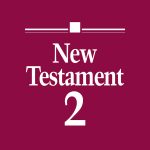 New Testament 2: Acts illustrates how the spread of the gospel in the early decades of the church was directed by the risen Christ. In particular, this unit shows how the spread of the gospel fulfilled the Old Testament expectations about God’s blessing the whole world through his people the Jews. Particular attention is paid to how the ministries of Peter and Paul took God’s plan to bless all people to a new stage.
New Testament 2: Acts illustrates how the spread of the gospel in the early decades of the church was directed by the risen Christ. In particular, this unit shows how the spread of the gospel fulfilled the Old Testament expectations about God’s blessing the whole world through his people the Jews. Particular attention is paid to how the ministries of Peter and Paul took God’s plan to bless all people to a new stage.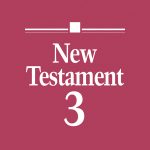 New Testament 3: Paul’s Letters collects together Paul’s letters (except Romans) and introduces students to the distinctive language, theology and style of the apostle to the Gentiles. It covers the wide range of theological issues found in Paul’s work such as ethical guidance about proper Christian conduct, teaching on church leadership and governance, theological reflections on the nature of Christ and the expositions of the relationship of Law and grace.
New Testament 3: Paul’s Letters collects together Paul’s letters (except Romans) and introduces students to the distinctive language, theology and style of the apostle to the Gentiles. It covers the wide range of theological issues found in Paul’s work such as ethical guidance about proper Christian conduct, teaching on church leadership and governance, theological reflections on the nature of Christ and the expositions of the relationship of Law and grace.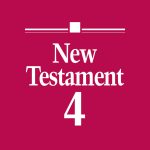 New Testament 4: Hebrews to Revelation. This unit provides an overview of Hebrews, James, 1 Peter, 2 Peter, Jude and Revelation. It introduces students to a wide range of literary styles and theological concerns such as the Christian attitude to suffering, the relationship of Christ’s sacrificial work to the Old Testament Law and the Christian expectation of the ‘end times’. Special attention is given to Hebrews, Revelation and 1 Peter.
New Testament 4: Hebrews to Revelation. This unit provides an overview of Hebrews, James, 1 Peter, 2 Peter, Jude and Revelation. It introduces students to a wide range of literary styles and theological concerns such as the Christian attitude to suffering, the relationship of Christ’s sacrificial work to the Old Testament Law and the Christian expectation of the ‘end times’. Special attention is given to Hebrews, Revelation and 1 Peter.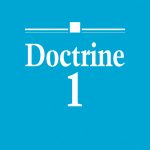 Doctrine 1: Knowledge of God focuses on what we can know about God based on what he has revealed of himself to us in Scripture. An important part of this unit is examining the nature and authority of Scripture itself, in which the concept of covenant is central. In addition to examining God’s sovereignty, power and Trinitarian nature, the unit also looks at the ideas of repentance, salvation and judgement.
Doctrine 1: Knowledge of God focuses on what we can know about God based on what he has revealed of himself to us in Scripture. An important part of this unit is examining the nature and authority of Scripture itself, in which the concept of covenant is central. In addition to examining God’s sovereignty, power and Trinitarian nature, the unit also looks at the ideas of repentance, salvation and judgement.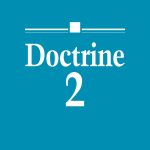 Doctrine 2: Christ & His Work focuses on what we know about the identity of Christ and what he accomplished, especially on the cross. This includes introducing students to theological approaches to understanding how Christ’s humanity relates to his divinity. Understanding this is important for understanding what Christ did in his death and resurrection. Included in the investigation of the cross is an examination of the nature and effects of sin.
Doctrine 2: Christ & His Work focuses on what we know about the identity of Christ and what he accomplished, especially on the cross. This includes introducing students to theological approaches to understanding how Christ’s humanity relates to his divinity. Understanding this is important for understanding what Christ did in his death and resurrection. Included in the investigation of the cross is an examination of the nature and effects of sin.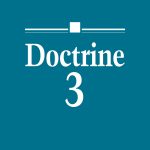 Doctrine 3: The Christian Life and the Church focuses on the life of a Christian and their place in the Church. It explores important questions about where we fit into God’s revealed plan, including the goal or purpose of the Christian life and what, exactly, is the Church. The chief theme is the Christian life, starting with what God has done, how he wants us to live as individuals and as his redeemed people, the resources he has provided, and how the kingdom of God will come in glory.
Doctrine 3: The Christian Life and the Church focuses on the life of a Christian and their place in the Church. It explores important questions about where we fit into God’s revealed plan, including the goal or purpose of the Christian life and what, exactly, is the Church. The chief theme is the Christian life, starting with what God has done, how he wants us to live as individuals and as his redeemed people, the resources he has provided, and how the kingdom of God will come in glory.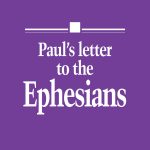 Ephesians systematically works through Paul’s letter to the Ephesians, showing that God’s intention is to unify all things in Christ. While we wait for this intention to be completely fulfilled, God has already provided a living demonstration of this unity in the church, in which the fundamental distinction between Jew and Gentile has now been overcome. The unit unpacks the implications of this unity for individuals, the church and the whole creation.
Ephesians systematically works through Paul’s letter to the Ephesians, showing that God’s intention is to unify all things in Christ. While we wait for this intention to be completely fulfilled, God has already provided a living demonstration of this unity in the church, in which the fundamental distinction between Jew and Gentile has now been overcome. The unit unpacks the implications of this unity for individuals, the church and the whole creation.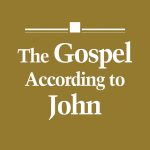 John’s Gospel. This unit focuses solely on John’s Gospel examining its distinctive content and style. Through a close reading of the text, the distinctive features of John that are drawn out include the concepts of ‘life’ and ‘discipleship’. Specifically, what does it mean to ‘live’ or ‘abide’ in Jesus, and what does being a disciple of Jesus actually require?
John’s Gospel. This unit focuses solely on John’s Gospel examining its distinctive content and style. Through a close reading of the text, the distinctive features of John that are drawn out include the concepts of ‘life’ and ‘discipleship’. Specifically, what does it mean to ‘live’ or ‘abide’ in Jesus, and what does being a disciple of Jesus actually require? Romans. This unit examines Paul’s most important theological work, his letter to the Romans. Students will be introduced to Paul’s thinking on the concepts of sin, grace, law, judgement, predestination, salvation and blessing. Students are also introduced to another important central concern in Romans, that is the ongoing place of the Jews in God’s plans.
Romans. This unit examines Paul’s most important theological work, his letter to the Romans. Students will be introduced to Paul’s thinking on the concepts of sin, grace, law, judgement, predestination, salvation and blessing. Students are also introduced to another important central concern in Romans, that is the ongoing place of the Jews in God’s plans. Apologetics is written with the conviction that apologetics is more than just intellectual and philosophical debate. Apologetics involves people’s whole beings. Modern apologists need to be concerned with how people feel toward Christ and the gospel as well as how they think about Christ and the gospel. As a result the unit provides outlines of standard apologetic arguments along with practical help guidance on the correct attitude and behaviour that must accompany those arguments.
Apologetics is written with the conviction that apologetics is more than just intellectual and philosophical debate. Apologetics involves people’s whole beings. Modern apologists need to be concerned with how people feel toward Christ and the gospel as well as how they think about Christ and the gospel. As a result the unit provides outlines of standard apologetic arguments along with practical help guidance on the correct attitude and behaviour that must accompany those arguments. Christian Ethics explores the foundations of Christian ethics, taking as its foundation the grace found in the gospel and extending from there to consider the status of moral rules in general, the importance of motivation and the role of conscience in ethical decision-making. The course address both the positive and negative aspects of Christian ethics and once a solid theoretical foundation has been laid examines some contemporary ethical issues from a Christian standpoint.
Christian Ethics explores the foundations of Christian ethics, taking as its foundation the grace found in the gospel and extending from there to consider the status of moral rules in general, the importance of motivation and the role of conscience in ethical decision-making. The course address both the positive and negative aspects of Christian ethics and once a solid theoretical foundation has been laid examines some contemporary ethical issues from a Christian standpoint. Christian Worship explores how we can best worship God with a particular emphasis on how we should think about what happens when we gather together in worship. We begin by tracing the origins of worship through the Old Testament sacrificial system, moving on to consider the changes brought to worship by the gospel. With this groundwork laid the subject considers topics such as the use of music and liturgy in public worship gatherings.
Christian Worship explores how we can best worship God with a particular emphasis on how we should think about what happens when we gather together in worship. We begin by tracing the origins of worship through the Old Testament sacrificial system, moving on to consider the changes brought to worship by the gospel. With this groundwork laid the subject considers topics such as the use of music and liturgy in public worship gatherings.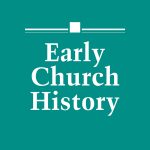 Early Church History covers the history of the church through its first five centuries, introducing students to the theological debates that ultimately led to the formal statements of Christian faith contained in the great creeds. This period also displays the many practical challenges the church faced as a minority population in a context that often presented Christians with a choice between holding to their faith and death.
Early Church History covers the history of the church through its first five centuries, introducing students to the theological debates that ultimately led to the formal statements of Christian faith contained in the great creeds. This period also displays the many practical challenges the church faced as a minority population in a context that often presented Christians with a choice between holding to their faith and death.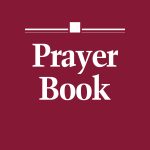 Prayer Book explores the liturgy of the Anglican churches, and especially the role of the Prayer Book in providing a structure for that liturgy. The unit has an historical aspect, tracing the development of the Prayer Book from the pre-Reformation form to its contemporary form and noting the political and cultural forces that informed this development. It also has a theological aspect, using theological concepts to explain why the Prayer Book has the precise form it does.
Prayer Book explores the liturgy of the Anglican churches, and especially the role of the Prayer Book in providing a structure for that liturgy. The unit has an historical aspect, tracing the development of the Prayer Book from the pre-Reformation form to its contemporary form and noting the political and cultural forces that informed this development. It also has a theological aspect, using theological concepts to explain why the Prayer Book has the precise form it does.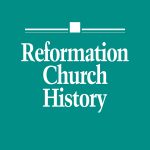 Reformation Church History covers the history of the church during the period of the reformation. It introduces students to the late medieval religious context from which the reformation grew and draws attention to the theological importance of the reformation led by Martin Luther. It also covers the Catholic response to the reformation along with the connection between political and theological reform, especially in Switzerland and Tudor England.
Reformation Church History covers the history of the church during the period of the reformation. It introduces students to the late medieval religious context from which the reformation grew and draws attention to the theological importance of the reformation led by Martin Luther. It also covers the Catholic response to the reformation along with the connection between political and theological reform, especially in Switzerland and Tudor England.

